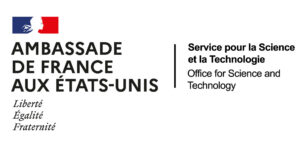Robotics is thus a highly diversified field that uses a variety of technologies to create intelligent machines capable of interacting with their environment autonomously or semi-autonomously.
Boston
Boston’s robotics ecosystem is strengthened by the presence of major companies such as Boston Dynamics, Irobot and Amazon Robotics, as well as innovation support structures such as the not-for-profit Mass Robotics accelerator, open to robotics startups from all over the world, and the robotics venture capital fund Cybernetix Ventures.
In addition to its acceleration programs for startups, Mass Robotics ffederates Boston’s robotics community through competitions, events, demonstrations and networking. The Robotics Summit & Expo also brings the international robotics community together in Boston to discuss new trends.
Fund-raisings confirm the importance of the robotics field in Boston, as illustrated by Locus Robotics ($416M), a startup specializing in the use of robotics technology for warehouses, and Vecna Robotics ($128M), which develops mobile robots to automate certain industrial tasks.
San Francisco
Robotics innovations are stimulated by the growing industry landscape, with leaders such as NVIDIA Corporation, Bright Machines, and Cruise LLC, and support and investment structures that pay particular attention to the sector, such as
Silicon Valley Robotics Accelerator and Eclipse Ventures. In addition,the Silicon Valley Robotics, association, for example, brings together experts from all fields to support the new emerging robotics industry across the agricultural, medical, social, logistics and space domains.
In the highly dynamic ecosystem of the San Francisco Bay Area, some of today’s leading companies were startups just a few years ago; such is the case of Bright Machines and Cruise LLC which have achieved exponential growth thanks to their disruptive technologies, applied respectively to assembly lines and autonomous vehicles. Promising new technologies now stand out, such as Dusty Robotics, which provides robots to support building construction, Wing, which develops drones for home delivery, Multiply Labs, which develops solutions for drug assembly, and FarmWise, which develops agricultural tools for precision weeding.



